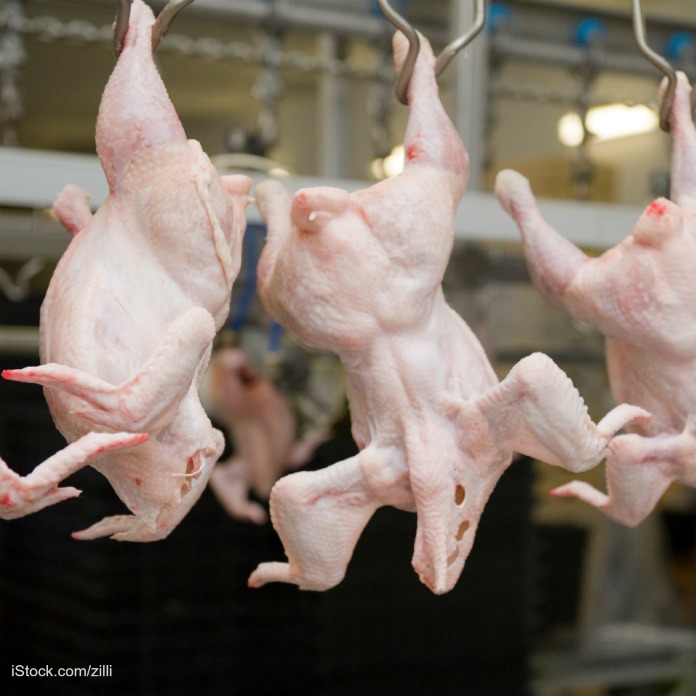Food & Watch Watch has analyzed the USDA’s regulatory sampling for Salmonella bacteria in the country’s poultry slaughter plants, and has found that more contaminated chicken is being produced. Thirty percent of plants operating under the new privatized system have failed the performance standard for that pathogenic bacteria.

The New Poultry Inspection System (NPIS) removes USDA inspectors from slaughter lines. Company employees are now responsible for inspections, under this system. Just one USDA inspector is on each line, and that person must inspect three birds per second. The final rule, proposed in 2012, was published in 2014.
USDA argued that this inspection system would reduce the incidence of Salmonella contamination. Wenonah Hauter, executive director of Food & Watch Watch, said in a statement, “It’s clear that this privatized inspection system that was hyped as an improvement to food safety certainly isn’t. In fact, it has higher rates of contamination than slaughterhouses with more government oversight. This does not come as a surprise.” This week, the National Chicken Council’s petition to lift the cap on chicken line speeds was denied.
Food & Watch Watch had to file a Freedom of Information Act request to see this data. They compared that list with the Salmonella verification testing results that were posted last week. Thirty percent of the 43 NPIS plants failed the performance standard. Only 13% of the non-NPIS plants failed the standard. One of the plants that failed had obtained a waiver on line speed, so they could run the slaughter line at 175 birds per minute. You can see the list of plants that failed at Food & Watch Watch’s web site.
Tony Corbo, a senior lobbyist at Food & Watch Watch said in a statement, “These test results confirm what we suspected when the USDA first proposed this new inspection system in 2012 and it’s why we filed suit against the agency when it finally started to implement it. We call on the USDA to stop further implementation of NPIS and revoke the line speed waiver for the Norman W. Fries plant that failed the salmonella testing.”
USDA wants to expand this inspection model to hog slaughter plants. In addition, there would be no line speed caps on hog slaughter. Food & Watch Watch opposes this rule.




